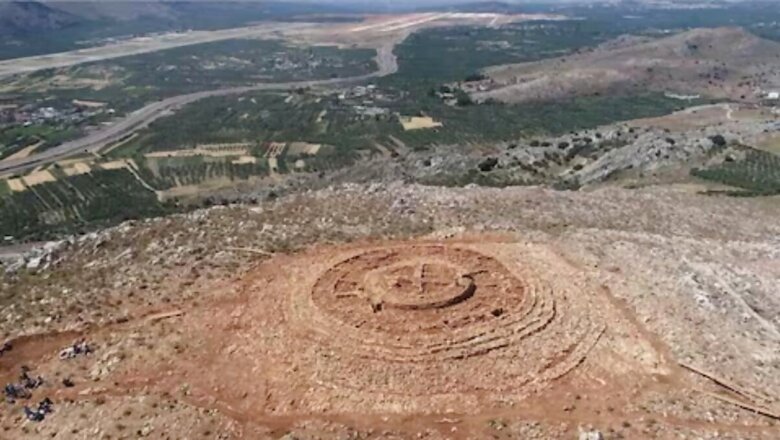
views
Ancient Greece is often called one of the cradles of modern civilisation, with monumental findings by archaeologists over the ages. A recent project to build an airport has accidentally led to the excavation of yet another monumental structure On the Greek island of Crete, archaeologists have uncovered an extraordinary 4,000-year-old stone monument shaped like a ring. Situated on Papoura Hill, this 1,800-square-meter structure is believed to date back to the Bronze Age.
The discovery was made during excavations for a major airport project. The monument is believed to have been used for ritual or religious purposes, constructed with eight concentric rings of stone, each 1.4 meters thick. Some of these rings remain standing at a height of 1.7 meters. According to the news agency Associated Press, this structure may belong to the Minoan civilisation which was used from 2000 to 1700 BC. During the same period, the Monumental Palace of Crete was also built.
Scientists are grappling with the mystery of this structure, unlike earlier discoveries from the Minoan civilisation, as its purpose remains unclear. When viewed from above, the monument resembles a large cartwheel and covers a total area of 19,000 square feet. According to the Greek Ministry of Culture, it has a diameter of 157 feet and shares structural similarities with Minoan tombs. Nearby, archaeologists have also unearthed ancient animal bones.
The Greek Culture Ministry has assured that the site will be protected from modern construction so that it can continue to allow further archaeological research and preservation of this remarkable find. Following the collapse of their civilisation, the Minoans faded into obscurity until the early 20th century when Sir Arthur Evans conducted archaeological excavations. He revived interest in them and coined the term “Minoan” based on the legendary King Minos. The palace at Knossos stands as the most famous example of Minoan architecture.




















Comments
0 comment